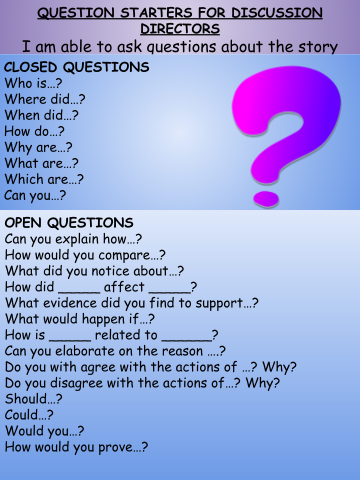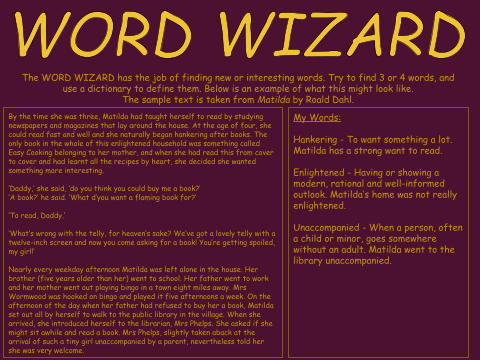Here is our discussion on Chapter 5 of Learning in the Fast Lane by Suzy Pepper Rollins.
Title of Book
Learning in the Fast Lane - Chapter 5 - Vocabulary Development
Author
Suzy Pepper Rollins
Synopsis
Many students arrive at school with up 70% less vocabulary than their peers. Here are some strategies for developing student strategies and exposing students to new words 6 times. These should be visual, interactive and collaborative.
How will it help me? How has it helped me?
I have used several of these strategies with my Level 1b writers. They have developed an understanding of key science vocabulary (e.g. force, energy, friction, vibration).
I need to include using the strategies for incidental vocabulary.
What is a teacher in the 21st Century? The world we inhabit is changing at a startling rate. As educators, we are trying to develop learners who are capable of being adaptive and competitive contributors. This applies to their future as employees and employers, citizens and family members. This is my record of how I will develop my teaching through inquiry to meet these changes.
Monday, September 16, 2019
Tuesday, September 10, 2019
Literacy Circle Conversation Student Resources
After our last KPMG day (The Dragon's Den), I decided to create resources to help students understand their roles better. These I have linked to the updated script, which is now a Google Presentation.
This Presentation has become the end result of several scripts, reading reflections and storyboards my class has used throughout the year. My students found previous reflections and scripts time-consuming and without purpose. Having the script as a presentation provides the students' another opportunity to collaboratively process their thinking.
Below are the accompanying resources for LIT CIR CON. Each relates to the roles as described by Lauren Coccia in her paper Literature Circles and Their Improvement of
Comprehension.
I would like to point out that these are the roles being used by my Year 6 students as I believe they align with the key comprehension strategies students need to interact with texts in Year 6 and beyond. In other cooperative literacy activities similar to literacy circles, such as reciprocal reading, there are similar roles. However, in reciprocal reading, the text tends to be attacked in smaller chunks page-by-page. In literacy circles the text is approached as a whole by each student.



Please feel free to make copies and changes as you see fit.
This Presentation has become the end result of several scripts, reading reflections and storyboards my class has used throughout the year. My students found previous reflections and scripts time-consuming and without purpose. Having the script as a presentation provides the students' another opportunity to collaboratively process their thinking.
Below are the accompanying resources for LIT CIR CON. Each relates to the roles as described by Lauren Coccia in her paper Literature Circles and Their Improvement of
Comprehension.
I would like to point out that these are the roles being used by my Year 6 students as I believe they align with the key comprehension strategies students need to interact with texts in Year 6 and beyond. In other cooperative literacy activities similar to literacy circles, such as reciprocal reading, there are similar roles. However, in reciprocal reading, the text tends to be attacked in smaller chunks page-by-page. In literacy circles the text is approached as a whole by each student.
Please feel free to make copies and changes as you see fit.
Tuesday, September 3, 2019
Understanding Behaviour: Responding Safely
Here are my notes on today's staff meeting on understanding and responding to the high anxiety behaviour we experience at Rawhiti School.
Much of what was discussed aligns with work on Restorative Justice and the book Lost at School. One consideration is how Ross Greene's book sets out to focus on a single missing social skill a child may have. In our teaching environment, we are trying to meet the needs of several children who are missing essential social skills, while trying to keep everyone safe and then teaching them at the same time. No small task.
Tomorrow I will make an effort to great each student I work with during writing by saying their name and giving them a high five/ fist bump. My current writing group is the most challenging I work with. There are many behavioural needs as well as strong learning needs across the board. This is an initial See Me strategy.
Much of what was discussed aligns with work on Restorative Justice and the book Lost at School. One consideration is how Ross Greene's book sets out to focus on a single missing social skill a child may have. In our teaching environment, we are trying to meet the needs of several children who are missing essential social skills, while trying to keep everyone safe and then teaching them at the same time. No small task.
Tomorrow I will make an effort to great each student I work with during writing by saying their name and giving them a high five/ fist bump. My current writing group is the most challenging I work with. There are many behavioural needs as well as strong learning needs across the board. This is an initial See Me strategy.
Subscribe to:
Comments (Atom)
Accelerating Spelling 2020
This year Rāwhiti School held Professional Learning Groups to help support our independent teaching goals. Below is my reflection of my goa...
-
This year Rawhiti School will be working with the DMIC programme to accelerate our learners in mathematics. These are my notes for the fir...
-
This is a quick update from my previous blog. Upon returning to school I meet with my students. We discussed specific problems they have w...
-
This year Rāwhiti School held Professional Learning Groups to help support our independent teaching goals. Below is my reflection of my goa...